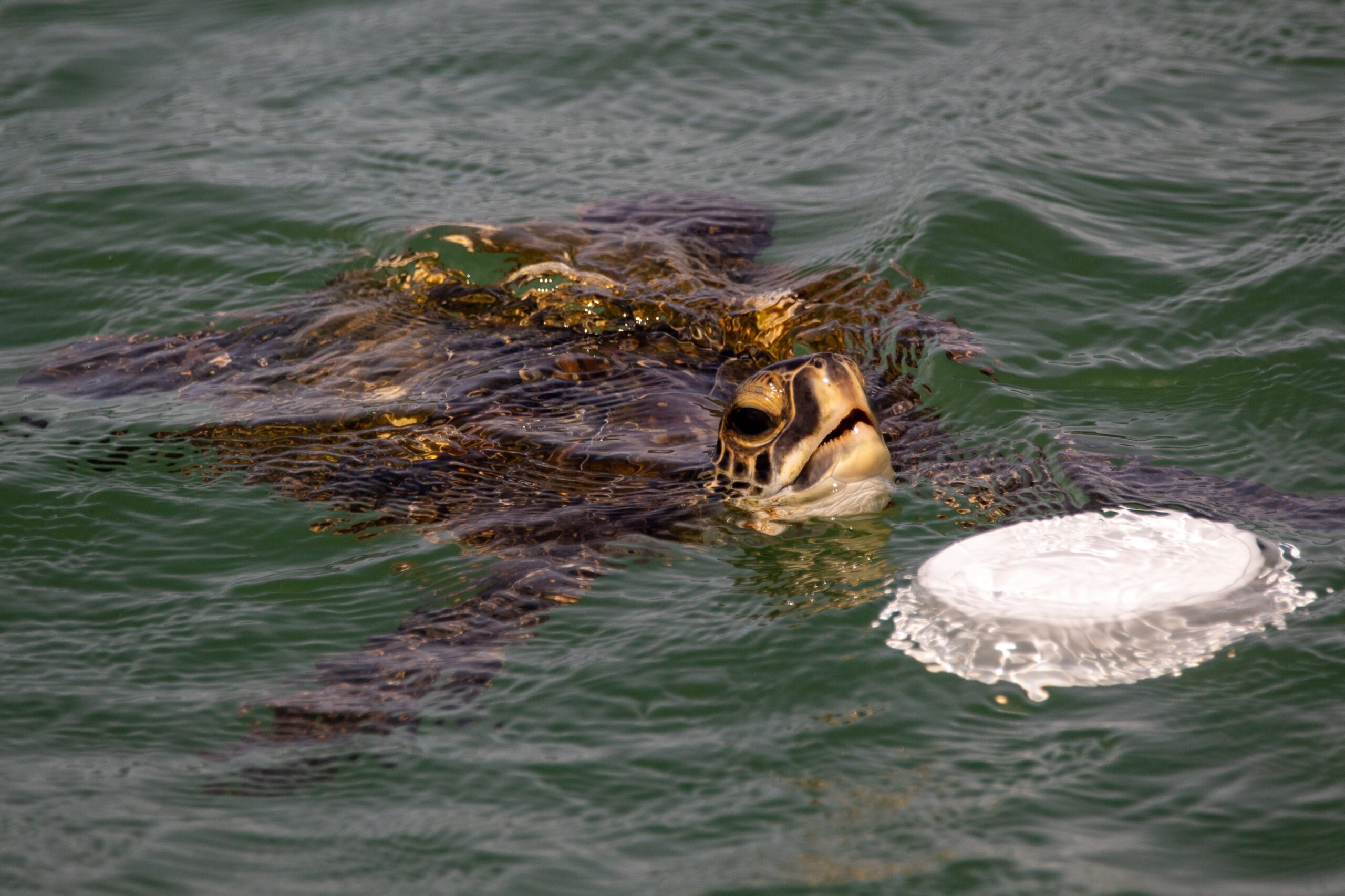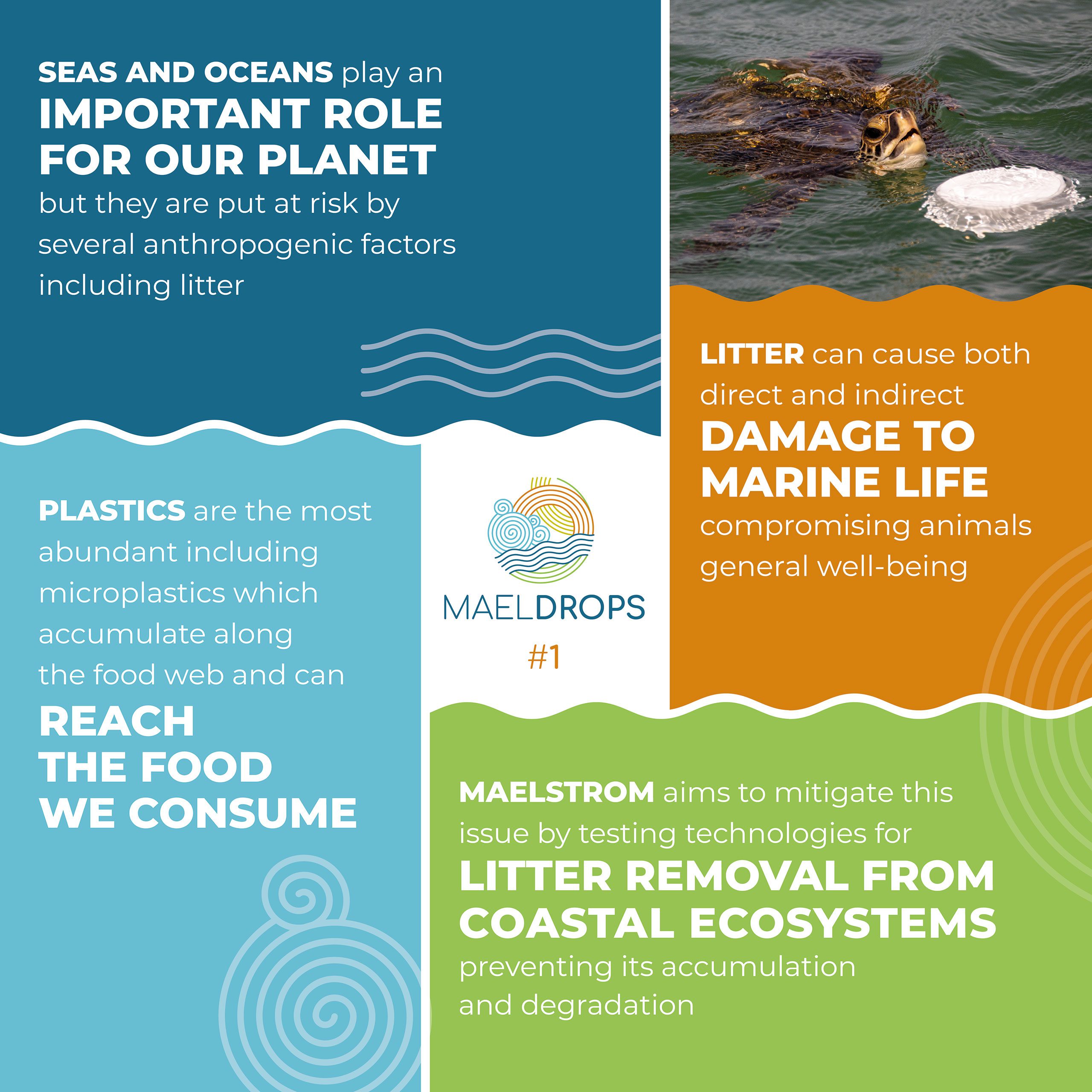MAELDrop #1 | The problem of marine litter
Day after day, coming together, raindrops fill the rivers and run into the sea. In the same way, we also want to create information drops which will fill our heads with thoughts, ideas and solutions related to marine litter and to MAELSTROM’s goals: please welcome MAELDrops! How does marine litter damage the coastal ecosystems? Are all plastics the same? What can we do to limit this problem, and how does MAELSTROM aim to tackle it?
So, let’s get started, come along with us and be part of the move!

Seas and oceans play an important role for our planet. They influence the climate, support the life of many species and sustain fundamental human activities. However, the well-being of marine ecosystems is put at risk by several anthropogenic factors, including litter.
Litter, whether lost directly along the coastline or delivered to the sea by rivers, wind, or urban run-off, has an important ecological impact on marine life. As highlighted in a report published by the European Commission’s JRC [1], litter can cause direct damage, for example by entangling or blocking the stomach/intestine of animals that accidentally ingest it. Moreover, the litter can cause indirect damage, for example by inducing a false sense of satiation, acting as vectors for toxic substances and compromising the animals’ general ability to feed themselves.
Among marine litter, plastics are the most abundant. These are both large fragments and waste or very small particles resulting from the degradation and fragmentation of larger items. These are the microplastics, smaller than 5 mm, which accumulate along the food web and, as a result, can even reach the food we consume [2].
What will MAELSTROM do to mitigate the litter issue? Our project will develop and test new environmentally sustainable technologies for removing litter accumulated on the seafloor or in the water column in coastal areas. MAELSTROM will then define and implement an integrated assessment approach (IAA) to evaluate the effectiveness of these technologies. This approach will support the Marine Strategy Framework Directive of European Union and assess the positive and/or negative impact of the MAELSTROM litter remediation actions on coastal marine ecosystems and local economies. The IAA will consider both macro and microlitter.
References
[1] https://ec.europa.eu/jrc/en/publication/harm-caused-marine-litter
